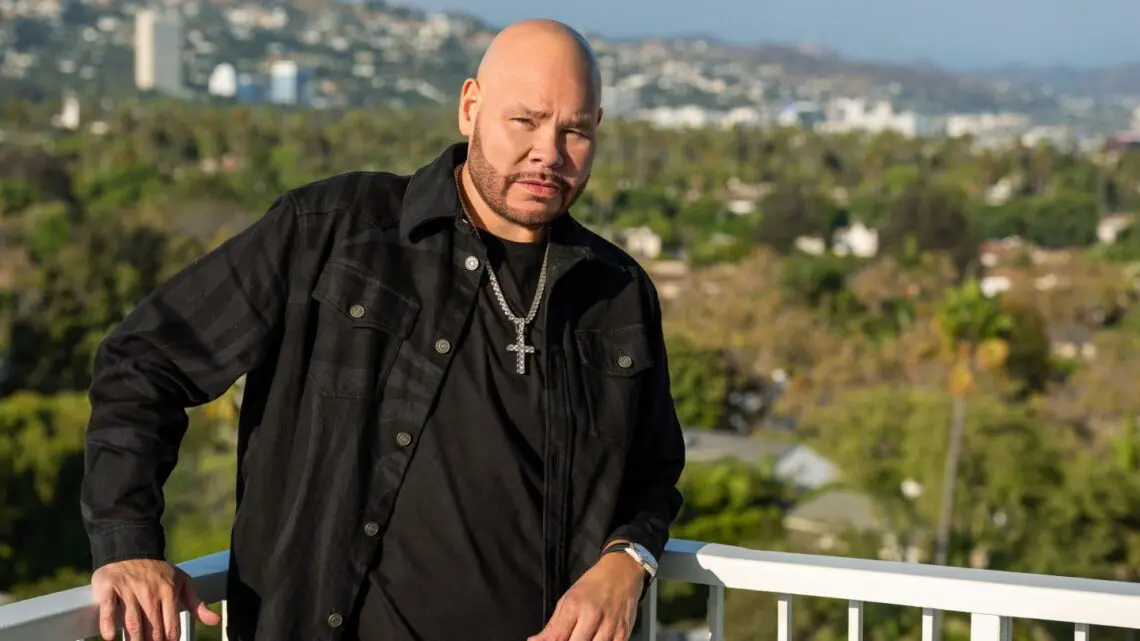Fat Joe’s new era: Embracing authenticity in a modern world
Revisiting the past: A conversation with Method Man
In the premiere episode of “Fat Joe Talks,” the Bronx rapper sits down with Method Man to reminisce about the constraints faced by hip-hop artists during the ’90s and 2000s. Both artists recall a period when they were required to present a tough exterior, hiding their true personalities from the public eye. Those days of feigned toughness are behind them, as Fat Joe emphatically states, “Not in 2024, it’s all about showing who you are and what your personality is.”
Shifting to positivity
Today, positivity is the hallmark of Fat Joe’s identity. This new ethos is the driving force behind his latest venture with Starz, the interview series “Fat Joe Talks.” The show, airing weekly since its October 4 debut, features candid conversations with influential figures like Omari Hardwick, Mary J. Blige, LL Cool J, and House Minority Leader Hakeem Jeffries, shedding light on their impact on pop culture.
Fat Joe explains, “Everything you see in Fat Joe Talks is positivity, uplifting the people, and giving them inspiration and motivation. This isn’t the show for clickbait or drama; it’s all about real stories and genuine encouragement.”
A fresh perspective on the media
When asked to comment on current allegations against Diddy, Fat Joe declines, highlighting his stance on the complex relationship between media and entertainers. He asserts, “You got to think about what’s been happening to artists for years and years. The last thing you want is to be jammed up by journalists with clickbait and rumors.”
Addressing hip-hop journalism
Fat Joe delves deeper into the topic of hip-hop journalism, expressing concerns over the negativity often perpetuated by the old guard of journalists. He notes how they historically capitalized on conflicts within the artist community, which sometimes had tragic outcomes like the East Coast-West Coast rivalry involving Biggie and Tupac.
For Fat Joe, platforms like “Fat Joe Talks” represent a shift towards a more positive narrative, where artists can share their experiences without the fear of being manipulated.
The rise of hip-hop commentary
Reflecting on the growing trend of former rappers enjoying success with podcasts and interview shows, Fat Joe believes it’s a natural progression. “It’s time we grew up into the commentating role. Look at basketball; you see legends like Charles Barkley and Shaquille O’Neal lending their insights. In hip-hop, it’s no different with figures like Cam’ron, Mase, N.O.R.E, and Joe Budden.”
When asked if he sought advice from these contemporaries, Fat Joe humorously responds, “Nah, I know what to do. I’m going for Oprah, man. She’s the one who can give me real tips.”
The evolving landscape of hip-hop journalism
Fat Joe also touches upon why modern artists prefer influencers and streamers over traditional journalists. He believes the older generation of hip-hop journalists often created unnecessary conflict. This negative narrative pushed artists to seek more controlled environments where they could convey their messages without fear of misinterpretation.
Interviewing high-profile guests
In a noteworthy episode, Fat Joe interviewed Vice President Kamala Harris for the BET Hip Hop Awards. Despite the magnitude of the interview, Fat Joe felt comfortable thanks to his familiarity with her. “I wasn’t intimidated because I know her. Initially, there were butterflies, but now we’re more at ease when we chat.”
Hip-hop’s political influence
In the political realm, both campaign sides are leveraging hip-hop’s powerful voice. Fat Joe explains, “Hip-hop has always been about truth, starting from nothing and becoming the voice of the people. However, some rappers support political figures like Trump mainly for personal gain, such as tax benefits, forgetting the broader implications for their communities.”
Diverse concerns among demographics
When discussing the electoral cycle, Fat Joe highlights different concerns between Black and Latino men. While Black men often feel underrepresented, Latino men have specific issues like immigration. He believes a unified approach could significantly amplify their political power.
Creativity in New York hip-hop
The inaugural season of “Fat Joe Talks” also features engaging dialogues with other hip-hop legends. When RZA remarked that New York rappers have lost their creativity, Fat Joe acknowledges the comment but remains hopeful. He himself is preparing to release a new project titled “The World Changed On Me” which signifies his resilient spirit amidst a gentrifying industry landscape.
Longevity in hip-hop
Fat Joe resonates with LL Cool J’s sentiment regarding the longevity of hip-hop careers. LL asserted that hip-hop culture and music shouldn’t be deemed disposable and that artists should continue to create regardless of age. Fat Joe fully agrees, stating that creating music is a lifelong passion, akin to how other professionals continue their craft beyond typical retirement ages.
Dream guests and future aspirations
When asked about his dream guests, Fat Joe doesn’t hesitate: “I’d love to have Jay-Z and Beyoncé – the ultimate power couple – or Obama. Having them discuss their family life, career juggling, and raising kids would be fantastic.”
Final thoughts
With “Fat Joe Talks,” the rapper seeks to create a space that celebrates authenticity and positivity. By showcasing the real-life experiences of influential guests, Fat Joe is revolutionizing hip-hop commentary, proving that this genre continues to evolve and inspire.
Share this journey of transformation and authenticity on social media, and stay tuned for more uplifting stories from the world of hip-hop.

 Italian
Italian







